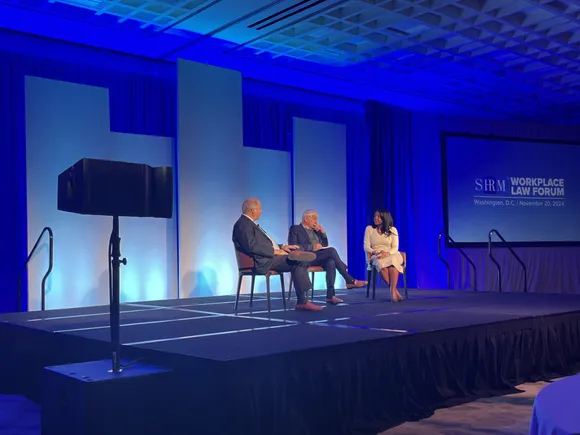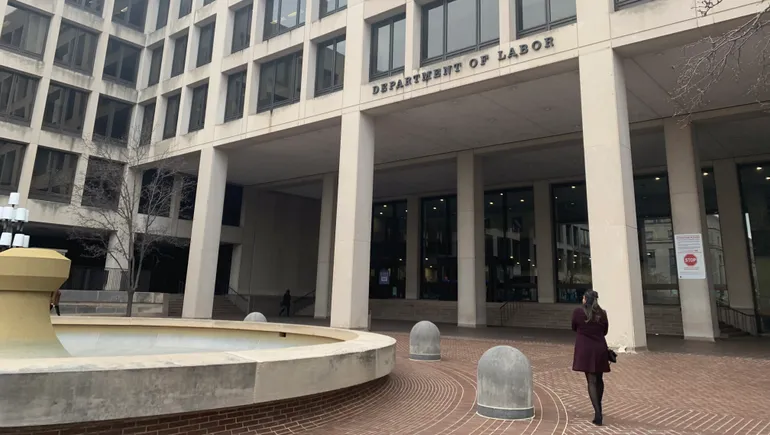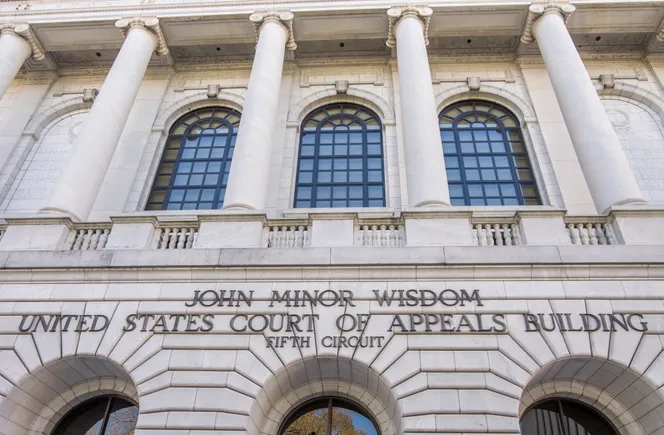WASHINGTON — Employer-side attorneys and consultants at SHRM’s Workplace Law Forum Nov. 20 were mostly in the dark about the incoming Trump administration’s specific policy goals, and few discussion topics evoked this sentiment quite like the president-elect’s immigration agenda.
“People are running for the hills,” said Toby Moffett, a former Democratic member of the House of Representatives and current partner at strategy and consulting firm Mercury. “We’re getting calls and there’s plenty of hysteria out there brewing.”
President-elect Donald Trump’s online policy agenda outlines several immigration enforcement priorities with an emphasis on border security. Specific items include deploying military personnel to the southern border and other regions to prevent illegal entry and drug and human trafficking. The agenda also calls for the “largest deportation program in American history” which, among other objectives, would include increasing penalties for illegal entry and for overstaying immigration visas.
Multiple speakers advised employers to prepare for federal worksite raids as part of that agenda. Trump will appoint former U.S. Immigration and Customers Enforcement Acting Director Tom Homan to lead the agency, and Homan has already said in interviews that worksites would be targeted under the administration’s deportation operations.
“Make sure you have a good law firm that’s very skilled at this,” Moffett said of employer preparations for potential worksite visits. His colleague Vin Weber, a former Republican congressman and also partner at Mercury, added that employers should learn from their legal counsel “before you have a confrontation.”
I-9s a ‘very important compliance area’
If worksite visits are on the table, Form I-9 compliance will be a “very important compliance area” for employers for the foreseeable future, said Bo Cooper, partner at Fragomen. “There will be more focus on the question [of] whether an employer is employing only those people that have permission to work in the U.S.”
But I-9 compliance is “tricky,” Cooper said, because while the process of filling out a Form I-9 may appear simple at first glance, “I would venture to say that even companies that put a lot of effort into trying to be meticulously compliant — it would be hard to find an immaculate I-9 collection because it just gets messy over time.”
E-Verify participation also does not necessarily mean that workers are protected from noncompliance, Cooper added.
“That’s more true in some areas and less true in others,” he said, noting that some industries present a greater risk of identity theft and E-Verify can be defeated if someone who is not authorized to work gains access to a stolen identity. “That’s just an extra layer of attention that’s important to pay in the employment authorization space.”
Employers also can expect more Form I-9 audits, said Eileen Lohmann, senior associate at law firm BAL, in addition to visits from the Department of Homeland Security’s Fraud Detection and National Security Directorate associated with high-skill worker visa petitions.
“Now is the time to start looking at your documents and making sure you have things in order,” Lohmann said.
In preparation for site visits, employers also may want to revisit their “front desk” policies — and stress test those policies — so that office personnel know who to call and loop in if a government official visits. “You’ll know if the front desk person freaks out because they don’t know what to do when the officer comes,” said Barbara Leen, senior corporate counsel at Microsoft’s U.S. immigration group. “Please do not tell them to go away.”
What’s next for skilled worker visas?
Trump has made increasing the number of skilled immigrant workers a consistent part of his public comments on immigration, said Weber. His policy platform states that “Republicans will prioritize Merit-based immigration, ensuring those admitted to our Country contribute positively to our Society and Economy, and never become a drain on Public Resources.”
Generally, however, employers should expect protection of U.S. workers to be an imperative of the Trump administration, Cooper said. Those who make use of the H-1B visa program, for example, may need to be aware of that program’s rules meant to ensure that such visas do not undermine U.S. workers.
One area to watch for H-1B visa petitions is wage requirements, Cooper added, and employers should have a process in place for carefully determining the proper job-level and wage classifications for H-1B positions and document why they make those determinations so as to defend from government challenges. This includes maintaining public access files for H-1B filings, Cooper said.
Additionally, if employers seek to sponsor people for permanent residence, they need to make sure they are attuned to government enforcement trends on the subject. Cooper said those in the immigration space have “watched wide-eyed” as government enforcement agencies entered “whopping” settlements for permanent labor certification cases.
In such cases, the Department of Justice has taken the position that employers could perform labor market tests for the purposes of green card sponsorship in a way that fulfills Department of Labor regulations but that still amounts to discrimination under a related but separate set of rules that the DOJ enforces, Cooper said.
Preparations for travel restrictions, ‘fear and uncertainty’
Leen said that the potential for travel restrictions means employers may need to ensure that they have contacts for employees who may be traveling outside of the U.S. especially after Trump’s inauguration.
“People do need to be careful around Jan. 20,” she added. “We don’t know what will happen and in what context it will happen and how quickly it will happen and what it will say. We have some clues from last time, but one thing I do remember about the Trump administration is that we didn’t get a lot of lead time on things happening.”
Aside from compliance issues, employers also may want to take note of preparations that nonprofit organizations for migrant and immigrant workers are making. Moffett said one of his children works in a Connecticut-based organization that works with migrants and is planning for potential workplace confrontations.
“We don’t want to scare everyone, but at the same time, we are entering a challenging environment for immigration,” Lohmann said. “There’s just going to be an atmosphere of fear and uncertainty for foreign nationals who are here, even if they are here legally, and so I think it’s just important to be aware of these issues.”






Leave a Reply